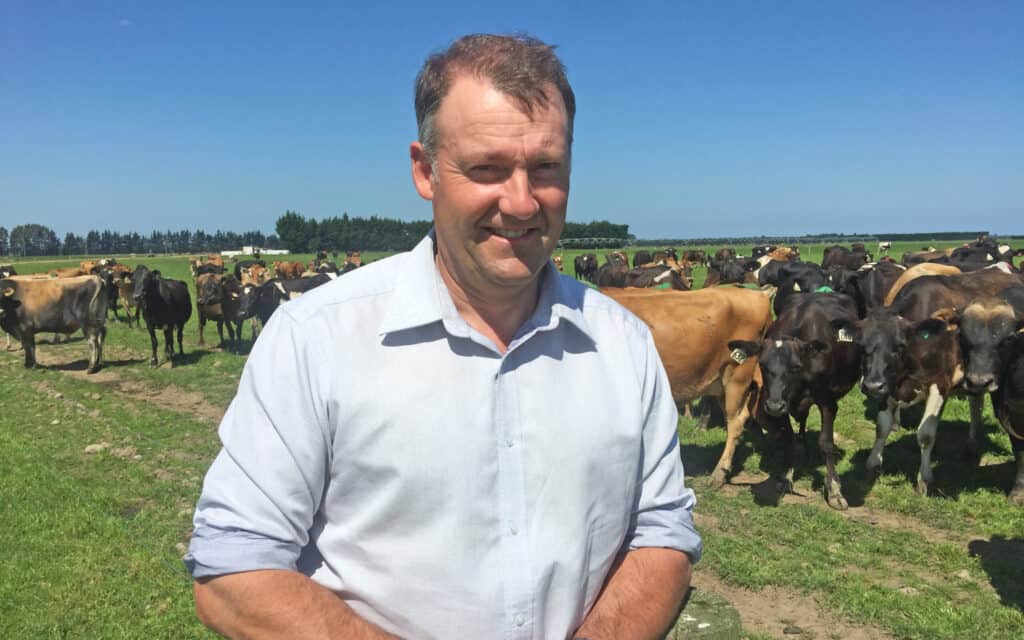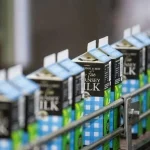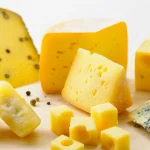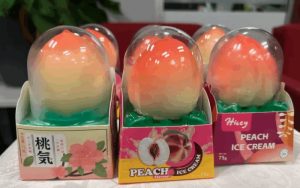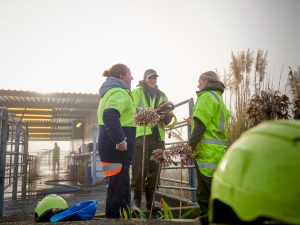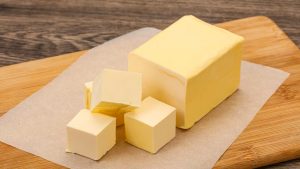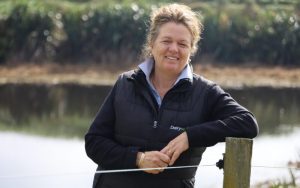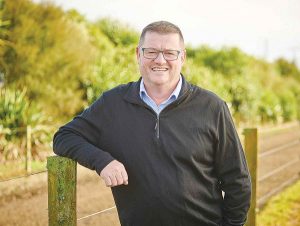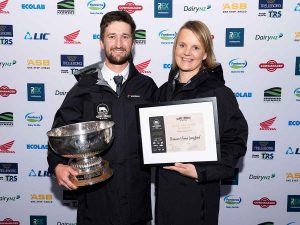
Colin Glass has stepped down from DairyNZ with plans to plunge deeper into dairying itself.
After two terms as a DairyNZ director, Colin Glass has stepped down from the board to focus more on personal opportunities in the sector.
This will include more of his time on his leadership role at Dairy Holdings while also growing his family’s dairy operations.
Described by DairyNZ chair Jim van der Poel as having “relentless positivity, razor-like focus and thoughtful questions that got to the heart of the issue”, Colin “made an outstanding contribution during a period of significant change and heightened regulation in the dairy sector”.
Colin grew up on the family farm near Methven in Mid Canterbury, did his secondary schooling at St Andrews College in Christchurch before going onto Lincoln University. He qualified as a chartered accountant.
He holds a commerce degree in farm management and a post-graduate diploma in accountancy and corporate finance and has been involved in the New Zealand dairy industry since graduating from Lincoln, with a stint also in the Australian dairy industry from 1997 to 2008.
In 1997, at the age of 27, he took up the role of chief financial officer for the Dunedin-based corporate dairy farmer Tasman Agriculture (TasAg).
Immediately following the sell-down of TasAg’s NZ farms and the purchase of the major shareholding by Dairy Holdings Ltd in 2001, Colin was appointed general manager and subsequently chief executive.
“Our systems based around our people, our process and our pasture are at the heart of Dairy Holdings,” he says.
This aligns with the overriding objective of maximising profitability by adopting systems that increase the quantity of pasture grown and harvested.
This business ethos is based on research conducted through Ruakura and more recently the Lincoln University Dairy Farm and Southern Dairy Hub, which provides the base system for successful and profitable dairy farming.
This systems-based approach to dairy farming enables Dairy Holdings to operate a significant corporate farming operation in NZ.
With 30 dairy farms across the South Island, Dairy Holdings is committed to achieving consistent and repeatable levels of profitability predicated on simple, pasture-only management systems.
This pastoral-based farming approach has enabled a considerable number of farm staff to progress to lower order sharemilking and 50-50 sharemilking positions, and subsequently, farm ownership.
In the rapidly changing landscape of NZ’s dairy industry, few are more qualified to discuss the sector’s trials, triumphs, and future than the outgoing Dairy NZ farmer director.
He says Dairy NZ played a crucial role navigating the challenges of M bovis, the essential freshwater reform and agricultural emissions pricing while championing farmers in the times of rapid change.
“It’s been a great ride over the last six years.”
He highlights the significance of robust leadership in steering through these disruptions.
“We are now going through massive change. If there’s ever a time for those that have an eye on leadership within the sector to step up, now is the time.
“We need good leaders – those that have a strong connection with farming and farming communities and a real knowledge around the science and an understanding of the importance in science – to really want to be part of that for the future.”
He is not blind to the current challenges facing the dairy sector, including higher interest rates, higher costs on farms, and lower prices.
But despite these hurdles, he remains optimistic about the resilience of NZ’s dairy farmers.
“It’s our ability to navigate these times that actually make us better.”
While he has stepped down from the Dairy NZ board, Colin is staying on with Dairy Holdings with his free off-board time now going into growing the family’s farming business with his wife Paula and daughters Hannah and Olivia.
He is also director of several irrigation and agribusiness companies and worked with the Fonterra International Farm Governance Group.
He is optimistic that the industry will be in safe hands going forward and that NZ’s dairy sector will continue to thrive.
“I believe the bit that has always set NZ up well is that each successive generation has always had hope in the future of the sector.
“As a family we see farming as a big part of our future, especially dairy that has treated us well over the years.”
As the industry continues to navigate its future amid rapid change and evolving challenges, his words serve as a beacon, illuminating the path forward.
“There have been peaks and troughs in the industry over the years.
“There has been a lot of change, a lot to do in the agri-space to ensure farmers are well positioned for the future.”
“NZ dairy farming is far more efficient at converting pasture into milk with lower emissions than anywhere else in the world. Standing out against others in the world is our strength.”
At the same time NZ farmers need to earn the right to operate.
“We need to accept change, but we don’t need it too hard and too far that it nails the viability of the sector, but enough to maintain our clean green image.
“Science is important, but it’s especially important for farmers to have an understanding and awareness of the practical sense on their own farms.
“Regulations need to be simple, practical and achievable so the industry has hope.
“I am very excited for the future of dairy.
“We [his family] are really upbeat of the future and want to be a part of it, so my spare time after DairyNZ is well taken care of.”
